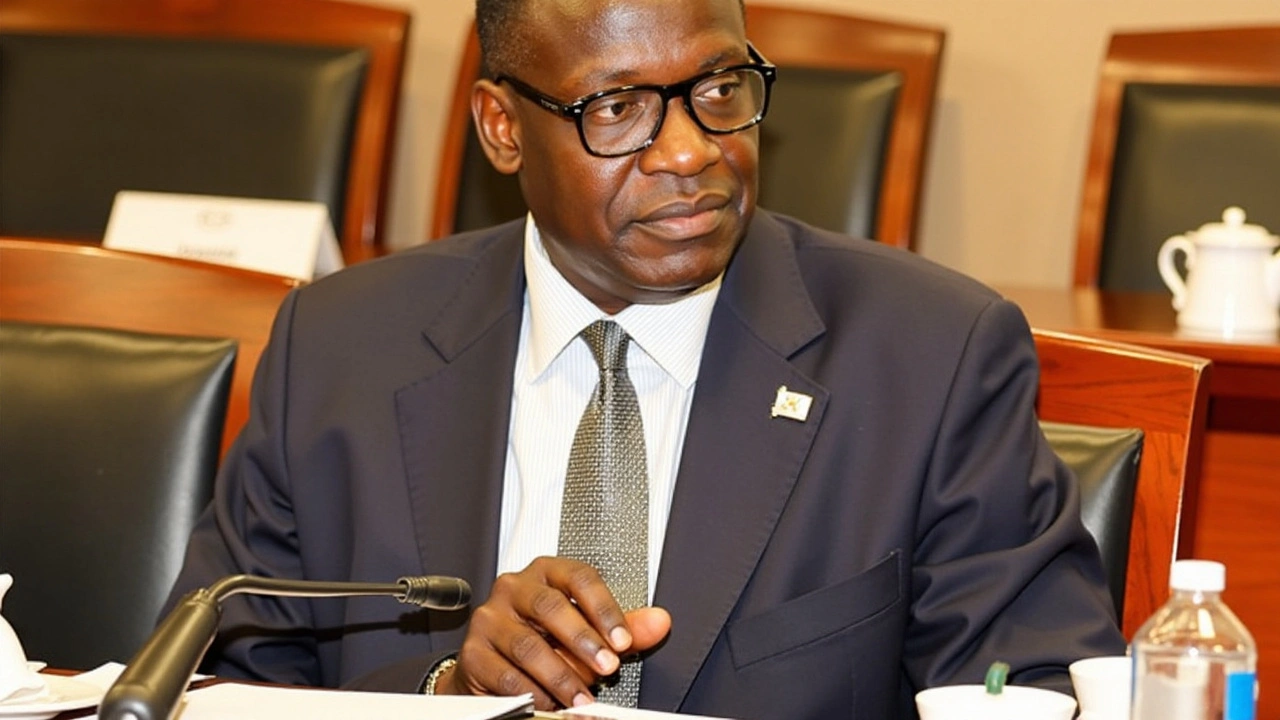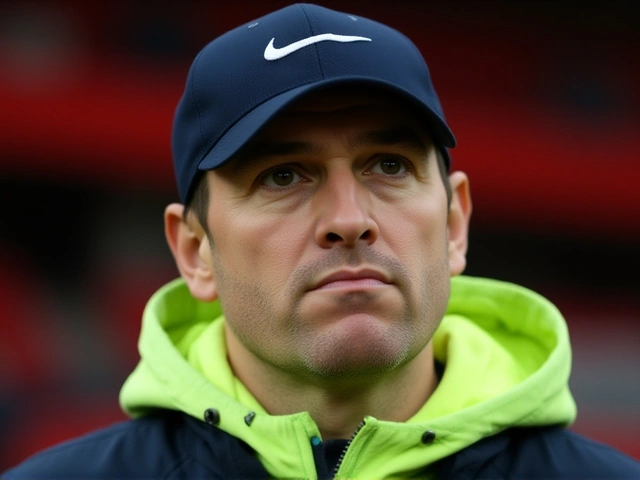Critical Negotiations for Sh1.1 Trillion Adani Takeover of JKIA
Negotiations concerning the Sh1.1 trillion takeover deal of Jomo Kenyatta International Airport (JKIA) by India's Adani Limited have intensified, reaching a crucial juncture. Transport and Roads Cabinet Secretary Davis Chirchir emphasized that no final concession agreement has been reached to date. Instead, parties have only settled on a 'Head of Terms' agreement, a preliminary document that outlines the key points of negotiation. Importantly, this document is not legally binding and awaits further due diligence and stakeholder consultations.
Understanding the 'Head of Terms' Agreement
The 'Head of Terms' agreement is a framework for ongoing discussions between the parties. It represents the shared understanding of what a formal agreement might eventually encompass. This includes elements like the scope of work, financial commitments, and timelines. However, it’s crucial to understand that this document is still in draft form and has not been signed by either party. The drafting of this 'Head of Terms' was not solely undertaken by Adani Limited. It involved input from ALG, a Spanish consulting firm, and Ashitiva Advocates, a Kenyan law firm. This collaborative effort aims to ensure that the terms would be beneficial and equitable to all parties involved.
Details of Adani's Proposal
According to the proposal, Adani plans to invest Sh230 billion into a comprehensive developmental overhaul of JKIA. This would include constructing a new terminal building, an associated apron, and taxiway system alongside two rapid exit taxiways. Additionally, the proposal encompasses a city-side development that will feature hospitality venues, business centers, and various other amenities. Adani's extensive experience in managing major airports, including Mumbai airport, was highlighted by CS Chirchir to justify the government's consideration of the proposal.
Questions and Concerns from Stakeholders
However, the plan has faced significant scrutiny and debate. Among the most vocal critics are senators who have raised concerns about the transparency and merit of the negotiations. Questions have surfaced regarding why the government is favoring Adani Limited despite allegations of corrupt practices involving the firm in other countries. Chirchir responded to these concerns by pointing out Adani's proven track record in airport operations and emphasizing the fiscal constraints currently faced by the Kenyan government. Being unable to borrow funds due to an existing fiscal deficit, the government views private investment as a viable solution for upgrading JKIA.
Adani's Local Subsidiary and Due Diligence Process
To facilitate the proposed takeover, Adani Enterprises has established a Kenyan subsidiary named Airports Infrastructure PLC (AIP). This move is likely aimed at ensuring a seamless transition should the deal receive approval. Moreover, the government has initiated a due diligence process to audit Adani Limited's technical and financial capabilities. This process was prompted by a Privately Initiated Proposal (PIP) submitted by Adani to the government back in March. Due diligence is critical in verifying whether Adani can meet the project’s technical requirements and financial obligations.
Public Participation and Next Steps
Public participation has been initiated to collect feedback from Kenyans as well as other stakeholders regarding the proposed takeover. This step is essential for gauging the public sentiment and addressing concerns before any legally binding agreement can be finalized. The feedback obtained from these sessions will be crucial in shaping the final decision. The Government of Kenya, through CS Chirchir, has stressed the importance of transparency and inclusivity throughout this negotiation phase.
In conclusion, while significant progress has been made in negotiations regarding the multi-billion shilling takeover of JKIA by Adani Limited, much remains to be settled. The 'Head of Terms' agreement is an important milestone but is far from the final step. Stakeholder engagement, due diligence, and public participation will all play pivotal roles in the coming months. All parties involved have a keen interest in reaching a mutually beneficial outcome that balances infrastructure development, economic considerations, and public interest.







Posts Comments
dhawal agarwal September 13, 2024 AT 21:28
This is one of those rare moments where infrastructure meets opportunity. Adani's experience in Mumbai could bring real efficiency to JKIA, but it's not just about who builds it-it's about who benefits. Kenya deserves more than a quick fix; it needs a legacy. Let's hope the due diligence isn't just a box-ticking exercise.
Shalini Dabhade September 14, 2024 AT 15:31
adani? again? they r lyk the cockroaches of global infra-survive evry scandal n show up where the money is. kenya better wake up before they turn jkia into a privatized tollgate for the rich. #adaniout
Jothi Rajasekar September 15, 2024 AT 21:59
I know some folks are scared, but let’s be real-Kenya can’t afford to wait for foreign aid that never comes. Adani’s got skin in the game, and if they’re investing Sh230B, that’s more than the govt can raise in 5 years. Let’s give them a fair shot, but keep the watchdogs sharp.
Irigi Arun kumar September 16, 2024 AT 13:08
It’s fascinating how we’ve come to equate private investment with progress, yet we forget that true development isn’t measured in terminal buildings or taxiways-it’s measured in how many children can get to school without walking 10 kilometers, how many small businesses can thrive without paying bribes at customs, and how many families aren’t forced to choose between food and electricity. If this deal doesn’t address those root issues, it’s just a shiny facade over a crumbling foundation.
Jeyaprakash Gopalswamy September 17, 2024 AT 12:47
You guys are overthinking this. Adani’s not here to steal your airport-they’re here to fix it. Think of it like getting a new phone: you don’t cry when Apple upgrades your old one, you just enjoy the faster wifi. Let’s trust the process, keep them accountable, and move forward.
ajinkya Ingulkar September 17, 2024 AT 17:56
Let’s not pretend this is about development. This is about selling national assets to a company with a history of exploiting weak institutions. Adani didn’t build Mumbai airport-they bought it cheap after the last government got greedy. Now they’re coming for Kenya’s pride. And you’re cheering? Shame on you.
nidhi heda September 18, 2024 AT 00:00
I just saw a video of someone crying at JKIA because their flight got delayed again 😭 and then I saw Adani’s proposal… I don’t know if I should cry harder or hug my phone. This is the moment Kenya either rises or gets sold out. Someone please tell me this isn’t a soap opera.
DINESH BAJAJ September 18, 2024 AT 23:48
Why is everyone so eager to hand over our airport to an Indian company? We have our own engineers, our own contractors. Why not build it ourselves? This isn’t progress-it’s surrender.
Rohit Raina September 20, 2024 AT 17:19
The 'Head of Terms' is just a handshake, not a marriage contract. If the due diligence finds red flags, the deal dies. If it passes, Kenya gets a world-class airport without going broke. It’s basic risk-reward math. Stop treating it like a conspiracy.
Prasad Dhumane September 20, 2024 AT 18:07
Look, I’ve seen airports in Delhi, Dubai, and Singapore. JKIA’s current state is like a 1998 Nokia phone trying to run WhatsApp. Adani’s not perfect, but they’ve got the muscle to upgrade it. Let’s not confuse nationalism with navel-gazing. We need functional infrastructure, not purity tests.
rajesh gorai September 21, 2024 AT 09:42
The structural asymmetry of this PIP is non-trivial. Adani’s SPV-Airports Infrastructure PLC-functions as a legal shell that externalizes systemic risk while internalizing profit extraction. The fiscal externality is profound: Kenya assumes sovereign liability for ancillary infrastructure while Adani retains IP and operational control. This is neocolonial capital architecture dressed in PPP semantics.
Rampravesh Singh September 21, 2024 AT 21:09
The Government of the Republic of Kenya, in its infinite wisdom and commitment to national development, has undertaken a meticulously structured and transparent process to ensure the long-term sustainability and global competitiveness of Jomo Kenyatta International Airport. The involvement of reputable international consultants and adherence to international best practices in public-private partnerships is commendable and reflects the highest standards of governance.
Akul Saini September 23, 2024 AT 02:10
The fact that ALG and Ashitiva Advocates were involved in drafting the Head of Terms is actually a good sign. It means the framework isn’t just Adani’s draft-it’s been stress-tested by local and international experts. That’s the kind of layered due diligence that prevents future disasters. Still, public feedback matters more than ever now.
Jothi Rajasekar September 23, 2024 AT 16:50
I see what you’re saying, but let’s not forget-Adani’s not the only foreign player in town. China’s building highways, Turkey’s doing stadiums, and the UAE’s got stakes in ports. If we reject every foreign investor because of headlines, we’ll be stuck with broken runways forever.
Write a comment